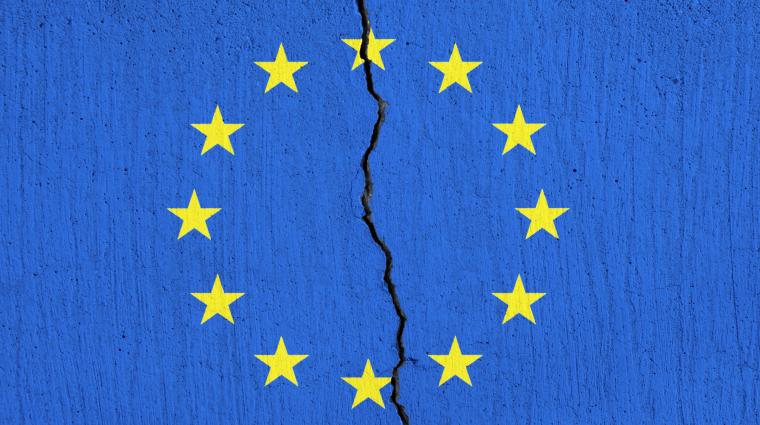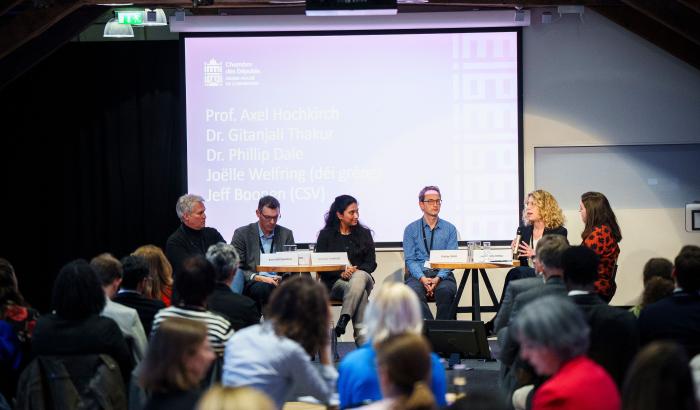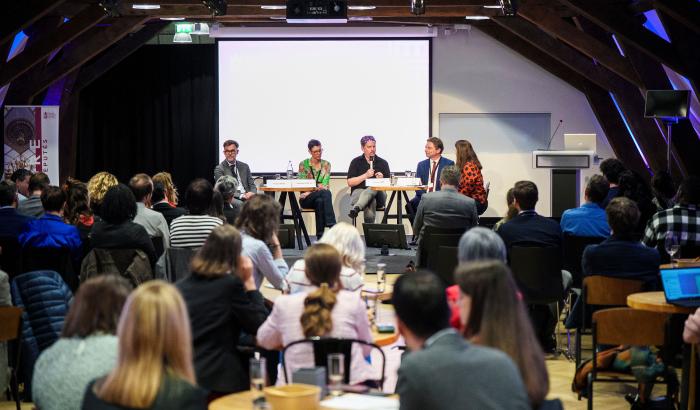
AdobeStock/M-SUR & Christophe Lesschaeve
Christophe Lesschaeve is a postdoctoral researcher at the Institute of Political Science at the University of Luxembourg.
Polarisation is a phenomenon that affects various aspects of our lives, from politics to social interactions. And it seems to be increasing. Does this correspond to reality? And how is the situation in Luxembourg?
Studies and surveys suggest that Luxembourg is less polarised than many other European countries, and that Luxembourg is bucking the trend of increasing polarisation, says researcher Christophe Lesschaeve from the University of Luxembourg. We asked him some questions about polarisation in Luxembourg. Here his full answers:
Is Luxembourg a polarised society or not compared to other European countries?
I think it is fair to say that Luxembourg's political landscape offers little fertile ground for the electoral success of extreme parties, unlike in many other European countries. Studies indicate that Luxembourg is notably less polarised than many European societies on key measures. Surveys of partisan sentiment rank Luxembourg among the least politically divided countries in Europe. In addition, citizens express exceptionally high institutional trust, with 92% expressing satisfaction with how democracy works, according to a recent Eurobarometer poll. Ideologically, Luxembourg’s party landscape is comparatively moderate, with extreme parties receiving limited support. Right-wing populism is largely confined to one small party, the ADR, but they only receive around 10 percent of the vote.
What is the evolution of the polarisation in Luxembourg over the last years?
Recent data suggest that Luxembourg has largely resisted the sharp increases in party system polarization seen elsewhere, making the country’s trajectory quite exceptional. When we look at studies that track how far apart political parties are in terms of their views, whether on economic questions or cultural issues like immigration or national identity, Luxembourg really goes against the trend. In fact, the gap between parties has even narrowed a bit in recent years, meaning the country is now slightly less polarized that it was a few years ago.
How is the evolution of polarisation in Europe over the last years (from +/-2018 till today)?
Those same studies show a notable rise in party system polarization across Western Europe in recent years, fuelled by debates over immigration, cultural values. This trend accelerated in the 2010s and 2020s, with ideological gaps between parties widening especially due to growing support for radical populist challenger parties. In other words, it is not that mainstream parties became more extreme, but rather that voters shifted away from centrist parties. Since 2010, polarization has increasingly coincided with fragmentation and electoral volatility, creating what some refer to as a “perfect storm” for democratic stability. However, it must be noted that, despite recent increases, the overall level of political polarization in Europe remains substantially lower than in the United States, both in terms of ideological distance between major parties and the intensity of partisan animosity among citizens.
Author: Christophe Lesschaeve (University of Luxembourg)
Questions: Jean-Paul Bertemes (FNR)
Editor: Michèle Weber (FNR)
You want more information about the topic? We analysed this in-depth, for the world, Europe and Luxembourg, in this article and more recently in a Ziel mir keng! video.
Infobox
Question 1 :
- https://today.rtl.lu/news/luxembourg/a/2258522.html (Mentioning an Eurobarometer finding)
- https://link.springer.com/article/10.1007/s11135-022-01350-8
- https://www.populismstudies.org/wp-content/uploads/2024/10/DOWNLOAD-REPORT-ON-LUXEMBOURG.pdf
Question 2 :
Questions 3 :
- https://www.tandfonline.com/doi/full/10.1080/2474736X.2024.2399095
- https://www.tandfonline.com/doi/full/10.1080/13608746.2022.2044236






